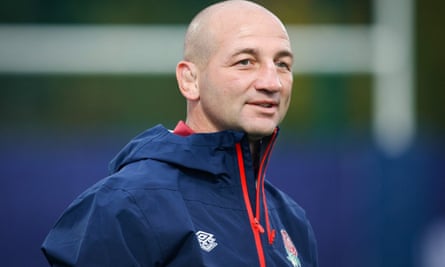Eddie Jones is a man who likes to remind you that he knows a little more about his sport than you do, that there isn’t a worthwhile question you could ask that he wouldn’t have a good answer to. And, since he has spent his life studying rugby and still wakes at 5am every day to get on with the job of becoming a better coach, he’s usually right, too. Which is why it was so striking to hear him talk about the one problem which, by his own admission, he didn’t manage to solve in the six years he was coaching England. And that was what drives the players.
Not in their every day in training, he knew that, or even in their everyday games, against teams they knew they could beat, but in their hardest matches, under the heaviest pressure. Jones was never quite sure that he knew how to stoke them in those moments.
Jones understood, from his own experiences, the character of the Japanese and Australian teams he worked with. He knew whether, and when, and why, the players needed to be chastised or criticised, coddled, congratulated, or consoled. But there was something in England’s rugby culture that was a bit of a mystery to him. There was a moment, in the days either side of his team’s famous 19-7 victory over New Zealand in their 2019 World Cup semi-final when he felt he had finally worked it out. And then, seven days later, the final happened. Yokohama is the place where Jones’s wave broke, and rolled back.
In the four-year cycle before that final, England won 79% of their matches; in the four-year cycle afterwards, the number fell to 62%. Thinking back now, my lasting memories of the mood afterwards are of England’s obvious shock at the intensity the South African team brought to that match. There was an unavoidable sense that Rassie Erasmus’s Springboks were fuelled by feelings that burned brighter, hotter, and longer than England’s. Erasmus had brought them to an emotional pitch that was levels above and beyond anything England could reach.
Test rugby, at that level, is as much a question of why you play as it is the way you play; what is the thing in you that’s going to push you on into the place you don’t want to go. And South Africa had a better answer than England did. Jones knew it, too. Two years later, I asked him if he felt had worked it out yet. “I’d be lying if I said yes,” he said, but he was working on it. Whether he would have ever got there or not is going to remain one of the great unknowns of English rugby.

England have been playing down all the talk about 2019 this week. “They are a different team and we are a different team”, Tom Curry said on Friday. Maybe, yes, in the way they’re led, and in the style they play. But 10 of their starting XV this Saturday played in the final, along with three of their eight replacements. And make no mistake, while South Africa might have a different fly-half, and a more expansive game plan, the challenge facing Steve Borthwick’s England is the same one Jones came up against in 2019. As Siya Kolisi explained this week, South Africa’s motivations haven’t changed.
So the question for England, then, is whether they’ve come up with a better reason why themselves. What is it they’re playing for? Erasmus has been talking all week about the “beef” England will have with his team because of the defeat in 2019. His fly-half Handré Pollard put it well: “You could see the disappointment on their faces four years ago. I’ve been part of a squad that’s fallen out in a semi-final in a World Cup, and it sits with you the rest of your life. There’s a lot of things you look back on and regret and I’m sure they will come with that mindset.”
after newsletter promotion
There is an anger in this England team, for sure, a crackling hostility. It’s running so hot that senior figures at the RFU even suggested Borthwick ought to tamp it down. But you wonder if, here, at last, England might have found the key Jones was looking for. There are great players in this England team, men with years of experience in Test and club rugby, from Jamie George in the front row through Maro Itoje and Courtney Lawes in the pack behind him, Owen Farrell at fly-half, Manu Tuilagi in the centre, Kyle Sinckler and Billy Vunipola and George Ford on the bench.
The same great players whose Test careers have been defined by that final, who have had four years of being beaten; of third, and fourth, and fifth-place finishes in the Six Nations, of watching Ireland and France win everything, including everyone’s praise, attention, and affection; who saw their last coach get drummed out of a job (after, yes, another loss to South Africa), who were written off before this tournament and even booed by their own fans. And maybe, just maybe, they’ve had enough of it, feel it’s finally time to prove everyone wrong. Whatever England lack going into this match, it’s not a reason why.